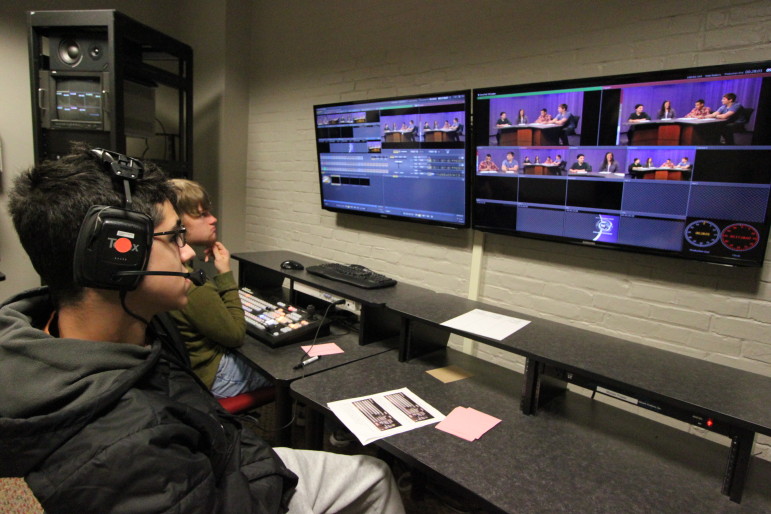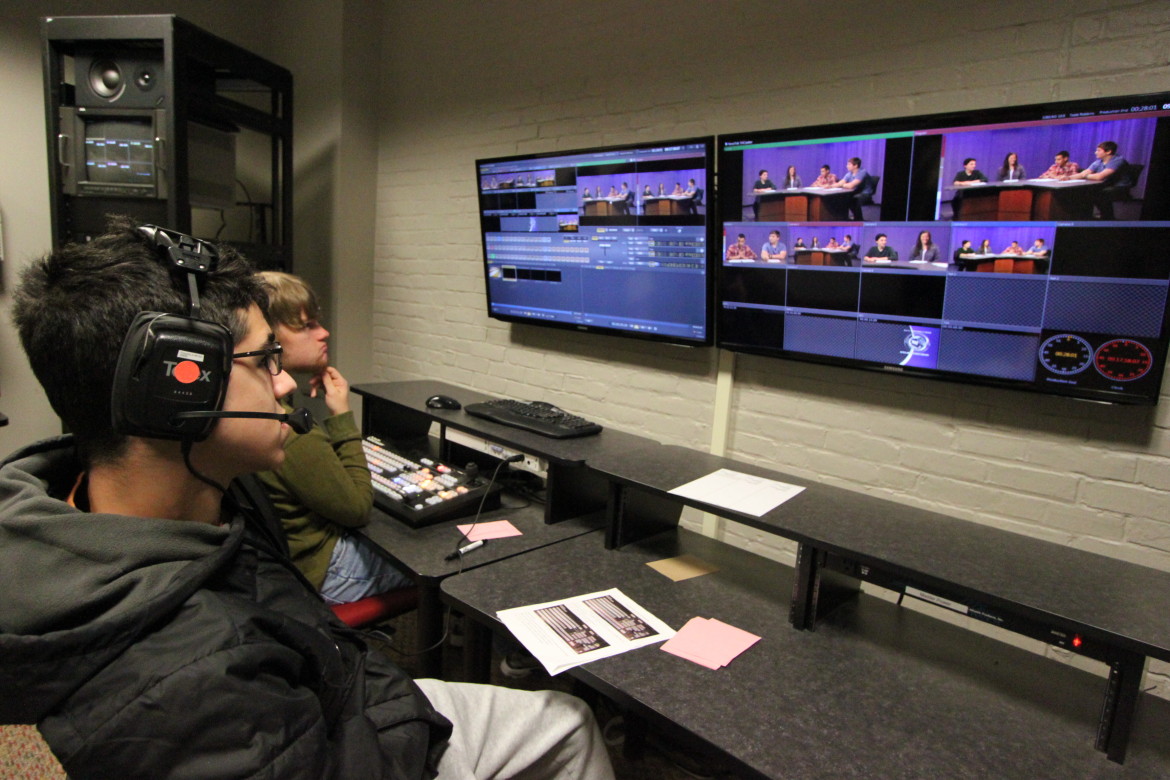
Charlie Breitrose
Watertown High School students shoot their own news panel show as part of their TV news production class.
After starting with a couple of periods of television production classes last year, Watertown High School students now have five classes to choose from, including one focused on radio.
With an expanding program, the high school hired Todd Robbins – a first year teacher but experienced broadcaster – to run the multimedia production program.
Students can choose from two sections of television news production, documentary film making and radio.
In TV news production, Robbins allowed students to choose what kind of program they wanted to do for the class.
“Both periods came up with similar panel style shows,” Robbins said.
The classes are run out of the studio at Watertown Cable Access, which is housed in the basement of Watertown High School. They also have a computer lab to edit video, and a radio studio.

Charlie Breitrose
Two Watertown High School students sit at the control room at the Watertown Cable studio.
One group came up with the idea for “How to Survive,” which gives advice how to handle different situations.
“They started with how to survive four years of high school,” Robbins said. “When they did those they moved on to how to survive college applications. An upcoming show will be how to survive parenting a teenager – from the perspective of a teen.”
Another group put together “Ask a …” where they interview people about their expertise. A recent show focused on trying out for a drama production.
Members of the class rotate so some weeks they are in front of the camera, others they are directing and another week they will be running the camera.
Shows air on WCATV – Comcast channel 8 and RCN channel 15 – or can be found on the WCATV.org website. The schedule is posted on Robbin’s website, www.mrrobbinsdmc.com. His website also features a video that Robbins showed at the January School Committee meeting, with examples of all the different shows being produced by WHS students.
This year, all the classes are introductory classes, but Robbins hopes to start classes next year for those with more experience, he told the School Committee.
Whichever course they take, Robbins said that the skills they learn will be valuable.
“The skills will be tremendously valuable no matter what field they go into,” Robbins said. “Whether they take documentary, TV or radio broadcasting it will serve them going forward.”
